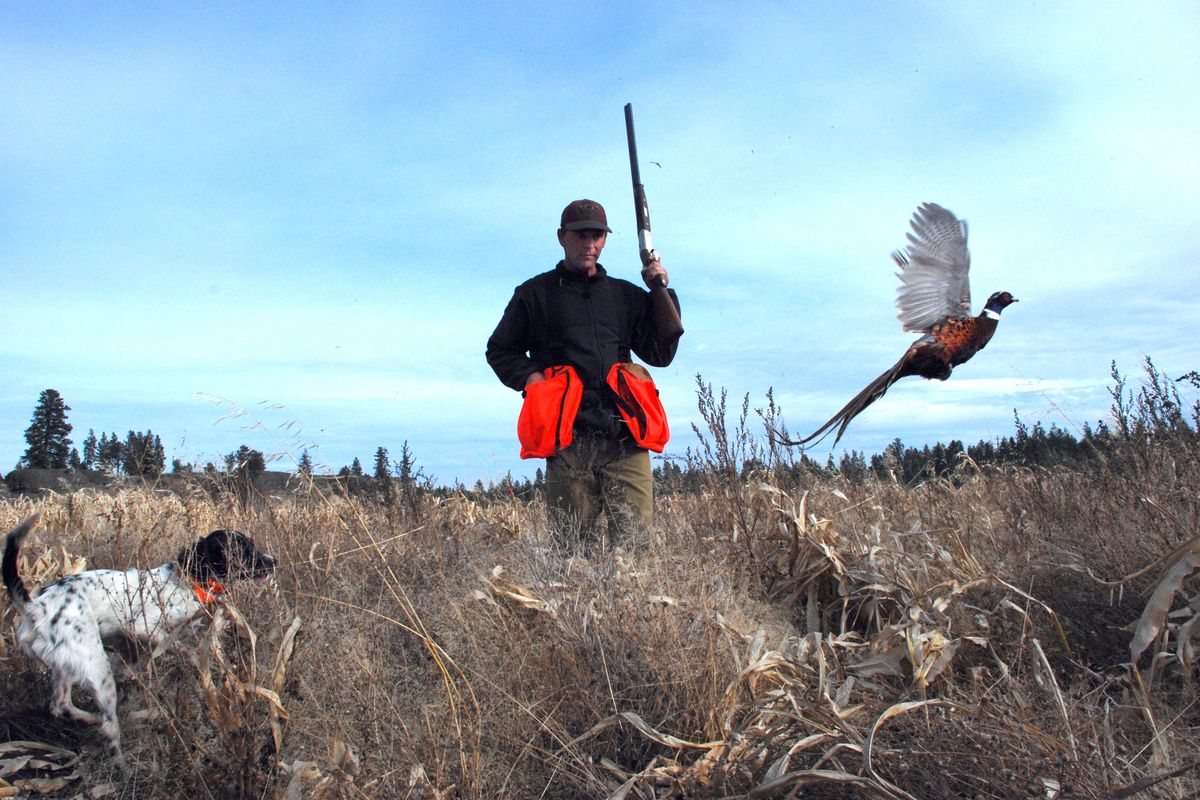Landers: Bird dog training for next season starts now

In fact, most bird dogs get little off-season enrichment to their craft.
They loaf; they chew up curtains and advance bad habits like begging for food, chasing squirrels and poking a pedigreed nose where it doesn’t belong on every person who visits.
These diversions will not add up to more finds on quail in October.
As a professional bird dog trainer, Dan Hoke deals every year with hunters who wait until September before thinking about getting their flushers, pointers or retrievers ready for the fall hunting seasons.
That’s poor timing, he said, noting, “There usually aren’t any quick fixes in dog training.”
Washington’s upland bird hunting seasons ended Monday. The best time to start planning dog training for the 2016-17 seasons is now, says Hoke, who owns Dunfur Kennel near Cheney and trains year around.
Serious training should commence this spring and conditioning workouts should ramp up in summer.
But now’s the time, while the recent season is fresh in memory, to make a list of what the dog did well and which areas need extra work.
If a pointer wasn’t steady on Huns as the season waned in January, he won’t be a bit better next fall without controlled training using live birds. Ditto for a springer that can’t be whistled off a running pheasant.
If the dog was reluctant to retrieve a duck at the end of this season, that can be fixed, but it may take time.
Why go another season with a dog that won’t heel or sit when commanded or won’t come when called?
“This year was pretty good for dogs because there were some birds to hunt,” Hoke said.
“Instead of doing a half-ass job by waiting until September, let’s chart a path so everything is ready to go when September arrives.”
Mental note: mountain grouse season opens on Sept. 1.
You can talk to your dog, whisper to it, plead with it, play with it, but, as Hoke points out, “Dog training takes time and repetition.”
Short high-quality sessions are better than long drawn out sagas. Precise timing of reward and correction is critical to dog training.
Sometimes things go wrong. My English setter, for example, was retrieving beautifully going into the recent hunting season until we had a freak accident during one of our daily playful retrieving breaks.
The dummy I tossed inadvertently landed on a downed wild rose stem. Scout dove in for the retrieve aggressively and the thorns sunk into his lips, gums, and tongue. He yipped as though he’d been electronically corrected at high voltage just as he hit the dummy.
Result: Dog runs up to dummy, circles and looks back wondering what to do next.
This took weeks of encouragement and rewards to reverse. The breakthrough came when I wised up and started using a different size and style of dummy. The dog was suddenly more receptive, and eventually his anxiety was cured.
A professional trainer, as well as joining a group of peers such as members of the Spokane Bird Dog Association, can enrich a hunter with proper training techniques and experience-based troubleshooting tips. Pros and clubs also have connections for obtaining pen-raised game birds for finishing touches.
“If your dog is young, maybe it actually learned to find birds this season and handle them nicely,” Hoke said. “Sometimes young dogs even do that without much training. That’s natural ability. Some dogs can be natural all their lives, but most need help.”
On the other hand, a bird dog with no natural ability may never develop into a good hunter.
The off-season also is the time for the hunter to refine his own techniques. For example, develop succinct commands used in the same intensity during training as well as in the field.
“The dog isn’t going to know dog commands just because it’s a dog,” Hoke said. “Dogs don’t respond well to rambling rants or conversations.”
In most cases, the only thing keeping a good bird dog from being great is the hunter who owns it.
Contact Rich Landers at (509) 459-5508 or email richl@spokesman.com.